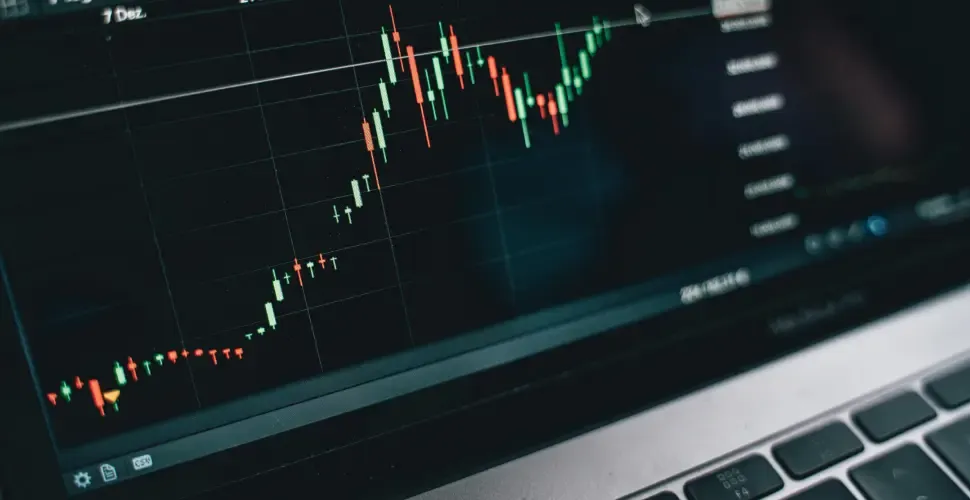7 min read
Share
In this article, we discuss forex trading psychology, including how to effectively manage your emotions.

Introduction to Trading Psychology
Forex trading is about much more than just having a good trading strategy or picking the right currency pairs to trade. Successful traders understand that trading forex is as much about trading psychology as it is about having a good trading strategy.
Forex traders who have consistently good trading performance have more than just a good trading plan; they understand risk management and have mastered the art of managing their emotions.
In this article, we will discuss the importance of managing your emotions, how they affect your trades, and even how they can lead to trading mistakes when not managed correctly.
Understanding Forex Trading Psychology
So, what exactly is forex trading psychology, and how does it impact forex traders?
Forex trading psychology is the mental and emotional aspects that influence a forex trader's decision making process.
These can be emotions such as fear or greed, which can cause a forex trader to make poor decisions, such as ignoring principles of risk management or not adhering to a clear trading plan, which can have a detrimental impact on trading outcomes.
The financial markets can be incredibly volatile, and even just one losing trade can negate the gains made on many profitable trades. Successful traders understand just how important trading psychology is and how big the impact of forex trading psychology is when navigating forex markets.
Emotional Struggles When Trading Forex
Practically speaking, how do emotional struggles affect forex trading? They cause people to deviate from their forex trading strategy and venture into emotional decision making.
This can include things like the following:
- Ignoring your personal risk tolerance
- Trading currency pairs you are not familiar with
- Trading with a poor risk reward ratio
- Not having a profit target in place
- Failing to trade with a stop loss in place
The Importance of a Forex Trading Strategy and Plan
The question is: How do you master trading psychology to become a successful trader? One of the most vital components is having a clear and detailed trading plan and strategy. Successful traders understand that trades should be executed based on a trading plan - not based on emotions.
No trader should embark on their forex trading journey without a clear trading plan. But what components should a trading plan account for to ensure consistently healthy trading behaviour?
The following are some of the most important aspects to consider when developing a trading plan:
Risk Management
When to Enter a Trade
When to Exit a Trade
Your Risk Tolerance
The purpose of a clearly defined trading plan is to avoid any emotional biases and execute trades on a predetermined set of parameters. Having a clear plan enables you to effectively navigate market volatility and remain calm even if a trade moves against you.
It's important to remember that even if you have a perfect trade setup, it does not guarantee that the trade will turn out to be profitable, which is why risk management strategies are so important.
Psychological Traps in Forex Trading
Navigating forex trading psychology isn’t just about managing your emotions - it’s also about understanding the common psychological traps that many traders fall into. These traps often influence traders to make hasty decisions that stray from their trading plan.
Some of the most common psychological traps include:
Overconfidence:
A few winning trades can make anyone feel like they’ve cracked the code. Overconfidence can lead to taking larger, riskier trades without proper analysis, which can ultimately result in significant losses.
Loss Aversion:
Losses sting - sometimes even more than wins feel good. This bias can lead traders to hold onto losing positions, hoping they’ll turn around, rather than cutting losses early as planned.
Confirmation Bias:
It’s easy to look for information that supports our decisions. But this trap can cloud judgment, especially when ignoring data that suggests the opposite.
The key to avoiding these psychological traps is to remain objective, stay grounded, and focus on the long-term rather than letting short-term emotions dictate decisions.
Developing Emotional Resilience for Successful Trades
Emotional resilience is about being able to handle market ups and downs without letting them impact your mindset. Building resilience isn’t something that happens overnight, but it’s a crucial skill for any trader who wants long-term success and to avoid emotional trading.
Consider practicing techniques like meditation, mindfulness exercises, or breathing techniques to stay calm. The goal here isn’t to ignore your emotions but to manage them effectively so they don’t interfere with your trading decisions.
The Role of Self-Discipline in Managing Emotions
Self-discipline is arguably one of the most crucial traits in forex trading. It’s what separates the occasional profitable trade from consistent trading success. With self-discipline, you'll be able to stick to your trading plan no matter how tempting it might be to stray when a trade doesn’t go your way.
Here’s what self-discipline might look like in action:
Avoiding Impulse Trades:
Every trade should be pre-planned, not done based on feeling or emotions.
Implementing Risk Management:
Successful forex trading is about managing risk effectively.
Regularly Reviewing Your Plan:
Self-discipline also means keeping your trading plan updated and reviewing past trades to learn from any emotional slip-ups.
Using a Trading Journal:
A trading journal is important not only to document trades but also to document your emotions.
These dynamics should become a key part of your trading journey, and the more you practice them, they will become second nature to you.
The Impact of Losses and Wins on Trader Psychology
The emotional rollercoaster of losses and wins is something many traders will experience, and the way you handle these swings is vital. A winning trade can sometimes make you more likely to jump into another trade prematurely, while a loss might lead you to revenge trading in an attempt to recover.
Successful traders acknowledge wins and losses objectively. Wins are a chance to reinforce good strategies, while losses are learning opportunities—if you approach them both with the same balanced mindset, you’re far less likely to make emotional decisions in future trades.
It is advisable to begin trading using a risk free demo account to practice trading and build up the confidence to trade real money.
Practical Tips for Managing Emotions in Forex Trading
Managing emotions in trading requires a consistent approach. Here are some tips to keep your emotions in check:
Set Stop Loss and Take Profit Levels:
This is vital in managing risks or enabling you to step away from the charts and avoid the temptation to change course mid-trade.
Limit Trading Hours:
Stick to specific hours for trading to avoid burnout or making emotional decisions late in the day.
Reflect Regularly:
Journaling after each trading session can help you understand your emotional triggers and gradually build resilience.
Be Part of a Trading Community:
Having a trading community around you can help manage your emotions, as people can encourage and correct you when you need it.
By implementing these practices, you’re setting yourself up for more rational, less emotionally driven trades.
Conclusion
In forex trading, understanding and managing your emotions is just as important as having a solid trading strategy and trading plan.
The psychological traps, emotional resilience, and self-discipline all play critical roles in helping traders navigate the ups and downs of the forex market without losing sight of their goals.
When it comes down to it, forex trading psychology is a skill that - like any other, takes time and practice to master.
But with consistent effort, you’ll find that managing your emotions can enhance your overall performance and help you make more level-headed decisions, keeping you on the path to becoming a successful trader.
Join our community
Get an insight from other users about SeacrestFunded and their experiences. 131K+ members and counting





